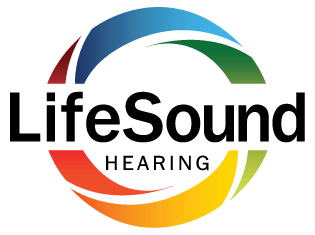For professional musicians, hearing isn’t simply a sense, it’s an essential part of their art and livelihood. However, many musicians still believe that hearing loss is just an unavoidable result of practicing their craft. This frame of mind, which regards hearing damage as an inevitable consequence of the job, is both outdated and unhealthy. Luckily, this harmful attitude is being challenged by growing awareness and recent legal developments which highlight how important the use of hearing protection is.
Rethinking hearing safety in noisy work environments
Musicians aren’t the only professionals exposed to high noise levels. Occupations in construction, manufacturing, and other noisy industries also encounter similar risks. However, these fields have generally been quicker to adopt protective strategies compared to the music industry. Several factors contribute to this disparity:
- Hazard Awareness: In construction and manufacturing, the array of hazards, like heavy machinery and falling objects, necessitates the use of safety gear like hard hats and ear protection. Protective equipment is a common expectation that is well-incorporated into the work culture as a result.
- Performance Concerns: Musicians tend to shun hearing protection devices because they’re worried that their sense of hearing will be muted. There’s a common misconception that earplugs or earmuffs may hinder sound quality or performance, despite evidence to the contrary. Out-of-date information is usually at the base of this misconception.
- Cultural Norms: The arts often cultivate an environment where professionals feel lucky just to have a job, leading them to accept suboptimal conditions without protest. Many people in the music industry feel as if raising concerns could put their careers at risk so they keep their potential worries about insufficient hearing protection to themselves.
It isn’t only the musicians who face this “just part of the job” mentality, it also includes road crews, sound engineers, and event staff, whose hearing is also at risk. This collective complacency has historically led to a considerable number of individuals experiencing hearing-related issues.
Legal precedents and changing mindsets
Industry attitudes with regard to hearing protection are shifting as a result of numerous legal cases. This shift is underlined by a groundbreaking legal case concerning the Royal Opera House in London. A viola player, exposed to dangerously high levels of noise from the brass section during a performance, suffered extreme hearing damage and tinnitus because of a lack of sufficient protection. The court’s decision in favor of the viola player underscored that the music industry must follow workplace safety standards, including hearing protection.
This ruling serves as a critical reminder that no industry, including the music industry, is exempt from the need for reliable hearing protection. It’s also pushing industry leaders to make the health and safety of their contractors and employees a focal point.
Dealing with acoustic shock and tinnitus
It’s shocking how many music professionals suffer from some level of hearing loss and tinnitus. Repeated tinnitus, permanent hearing damage, and hyperacusis caused by exposure to extremely loud sound is known as acoustic shock. The risk is particularly acute for individuals frequently exposed to loud environments, such as DJs, classical musicians, rock bands, and their support crews.
The good news is, musicians can now invest in specialized hearing protection that will safeguard their hearing while still allowing them to get accurate sound fidelity.
Cultivating hearing loss prevention as a culture
Nowadays it’s all about creating a cultural shift in the entertainment and music industry, not about being able to get specialized hearing protection. The main objective is to move away from the outdated idea that hearing loss is just an unavoidable part of being in the music industry and to normalize the use of protection. The Royal Opera House case has catalyzed this change, showcasing the need for proactive measures to protect hearing.
As awareness increases and protective strategies become standard, the prevalence of tinnitus and hearing loss in the music industry should decrease. Hearing loss should never be considered “part of the job”. Protecting their hearing health and taking the proper safety steps is crucial for every professional regardless of what their job is.
By embracing this new paradigm, musicians and industry professionals can safeguard their most valuable asset, their hearing, while continuing to excel in their craft.
If you are in the music industry and concerned about your hearing health, call us to schedule a hearing test.
[blogcta]

